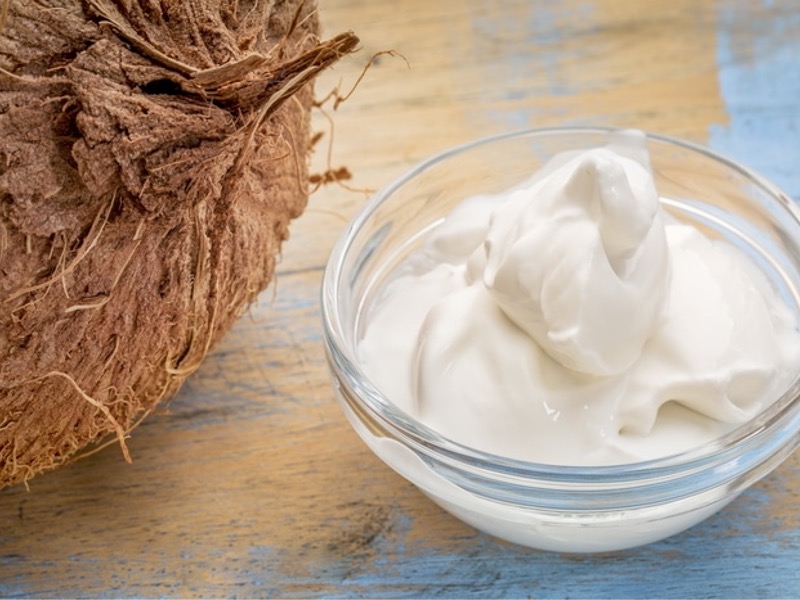Coconut Yoghurt

Yoghurt is a fermented product obtained by the fermentation of cow milk using lactic acid bacteria such as Streptococcus thermophiles and Lactobacillus delbrueckii spp. Bulgaricus. Yogurt from coconut milk can also be consumed by lactose intolerant. (Yaakob et al. 2012) optimized the ingredients for coconut yoghurt processing. One liter of coconut milk was preheated at a temperature of 90°C for 3 min. It was then cooled till the temperature reduced to 40°C. 3% inoculum was mixed to the coconut milk and the cultured coconut milk was incubated at 37°C for 8 hours then it was stored at 4°C. A combination of soymilk (50%) and coconut milk (50%) has also been used in the preparation of soy-coconut yoghurt. (Belewu et al. 2005). Studies also shows that the there is no significant difference between the yogurt produced from skimmed cow milk and coconut-cow milk composites in all sensory attributes. Thus coconut milk can be used along with cow milk to produce acceptable and affordable yoghurt (Sanful 2009).
- Contain Probiotik
Eating coconut yogurt is an excellent method for probiotic intake that helps regulate the microflora (bacteria) in the digestive system, effectively managing harmful bacteria. This lowers the risk of conditions such as inflammation (as seen in IBS), gas, diarrhea, and various fungal infections.
- Reduce belly fat
Coconut yogurt is composed of medium-chain triglycerides. These triglycerides have been researched to lower the risk of atherosclerosis, aid weight management, boost immunity, and are recognized to potentially reduce belly fat.
- Contains vitamins and minerals.
Consuming a serving of coconut yogurt contributes to around 25 to 30% of the daily recommended intake for vitamin B-12, crucial for the production of red blood cells, and vitamin D, vital for the absorption of calcium.
Source : https://healthaio.com/coconut-yogurt-benefits/

